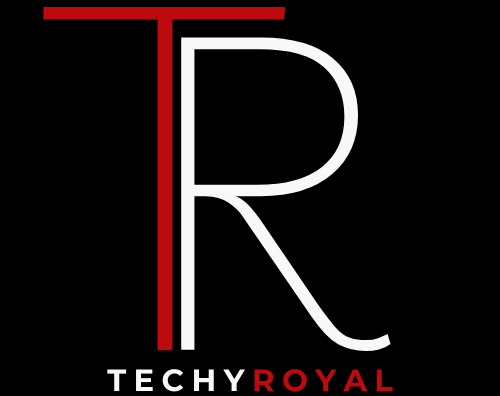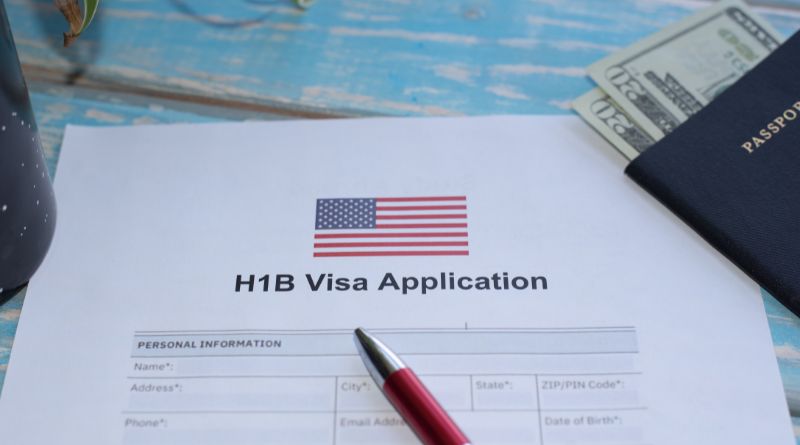Rajkotupdates.news : america granted work permits for indian spouses of h-1 b visa holders
Rajkotupdates.news : america granted work permits for indian spouses of h-1 b visa holders Are you an Indian spouse of an H-1B visa holder dreaming of working in the United States? Well, here’s some excellent news for you! America has recently granted work permits to Indian spouses of H-1B visa holders, allowing them to pursue their careers and contribute to society. This blog post explores why this new policy is beneficial and answers some common questions about eligibility requirements and timelines. So buckle up and get ready to learn everything you need to know about this exciting development!
America Granted Work Permits for Indian Spouses of H-1B Visa Holders
The decision to grant work permits to Indian spouses of H-1B visa holders is a significant victory for families who the program’s restrictions have long separated. Now, spouses can finally pursue their careers and provide valuable contributions to society while supporting their families.
This new policy is especially significant for women who have put their professional aspirations on hold to support their husbands’ careers. With this change, they, too, can now access job opportunities that were previously unavailable to them.
Beyond the personal benefits, there are also broader economic advantages to allowing more people into the workforce. By granting work permits, America is tapping into a pool of highly skilled individuals who can help drive growth and innovation across industries.
This policy shift represents an important step towards greater inclusion and opportunity for all members of society – not just those with certain types of visas or backgrounds. It’s an exciting time for Indian spouses of H-1B visa holders and anyone looking to build a better future in the United States!
Why are Indian Spouses of H-1B Visa Holders Benefiting from America’s New Policy?
The recent decision by the United States to grant work permits for Indian spouses of H-1B visa holders is a significant development that has been welcomed with open arms. But why exactly are Indian spouses benefiting from this new policy? rajkotupdates.news : america granted work permits for indian spouses of h-1 b visa holders
For starters, this move enhances the attractiveness of the US as a destination for highly skilled Indian professionals seeking better career opportunities. Allowing their spouses to work legally in the country gives them an additional incentive and sense of security when considering job offers in America.
Moreover, enabling these individuals to contribute economically can result in numerous benefits for their families and American society. With access to employment opportunities, they can earn wages and support their families financially while assimilating into local communities more effectively.
Furthermore, such policies foster greater cultural exchange between India and the US. As Indians continue to play vital roles in various sectors across America’s economy – including technology, medicine, and finance – supporting their family members’ professional aspirations only strengthens bilateral ties between these two nations.
Are Indian Spouses of H-1B Visa Holders Legally Entitled to Work in the U?
One of the most common questions asked by Indian spouses of H-1B visa holders is whether they are legally entitled to work in the U.
S. The answer is yes, but it wasn’t always that way.
In 2015, under the Obama administration, a policy was implemented allowing certain H-4 dependent spouses to apply for employment authorization documents (EADs) if their H-1B spouse had an approved I-140 immigrant petition or had been granted an extension beyond the six-year limit.
This policy was welcomed by many as it allowed qualified individuals to utilize their skills and education while living in the United States with their spouses. However, this policy was challenged and temporarily suspended under the Trump administration before being reinstated earlier this year.
Indian spouses of H-1B visa holders who meet specific eligibility requirements can apply for EADs and legally work in the U.
S., providing more opportunities for families and contributing positively to American society.
What is an H-1B visa?
An H-1B visa is a work visa that allows foreign professionals to work temporarily in the United States. Specifically, it will enable U.
S. employers hire highly skilled workers from other countries when they need help finding qualified candidates locally.
This type of visa classifies occupations into specialty fields such as engineering, technology, mathematics, and science. The applicant must have a bachelor’s degree or higher in the area where they are being hired.
The employer who sponsors an H-1B visa holder should also pay them at least the prevailing wage rate for their job position based on geographic location and industry standards.
This temporary stay lasts up to three years, with one extension available for another three years. After six years on an H-1B visa status, individuals must leave the country unless they get sponsored by their employer or obtain permanent residency.
Obtaining an H-1B visa requires meeting strict eligibility requirements and going through a rigorous application process.
What are the requirements for an H-1B visa holder to get a work permit?
To obtain a work permit, H-1B visa holders must first have an approved Form I-129 petition filed by their employer. The petition should outline the job offer and qualifications of the beneficiary and attest to their salary and working conditions.
After securing a valid H-1B visa, the spouse can apply for their Employment Authorization Document (EAD), also known as a work permit. This will allow them to work in the United States legally.
The application process requires filling out Form I-765 and providing supporting documentation such as proof of marriage to the H-1B visa holder, passport photos, and copies of both spouses’ visas.
Applicants must also pay applicable fees and submit fingerprints for background checks. Once submitted, it may take several months before receiving approval or denial of their EAD application.
Applicants must ensure all information provided is accurate and up-to-date, as any discrepancies may result in rejection or delay their application processing time.
Who is eligible for an H-1B visa?
You must meet specific requirements to be eligible for an H-1B visa. Firstly, you must have a job offer from a U.
S. employer that is willing to sponsor your visa application. The job should require specialized knowledge and skills in IT, engineering, or science.
In addition, you need to have at least a bachelor’s degree or equivalent work experience related to the field of employment. If your degree was obtained outside the US, it must be evaluated by a credentialing agency approved by USCIS.
You must also pass the Labor Condition Application (LCA) process, where your employer attests that they will pay you the prevailing wage rate for similar jobs in their area of business and working conditions.
It is important to note that there is an annual cap on the number of H-1B visas issued each year which may affect eligibility based on the timing of application submission. Additionally, certain countries are subject to longer processing times due to high demand.
Meeting these requirements will help determine whether one can qualify for an H-1B visa.
How long will it take for my spouse to get a work permit?
Obtaining a work permit for an Indian spouse of an H-1B visa holder can take some time. First, the H-1B visa holder must have a valid work visa and be employed in the United States.
Once established, the spouse can apply for a work permit through Form I-765 with U.
S. Citizenship and Immigration Services (USCIS). The processing time for this application varies but typically takes around 3 to 5 months.
It’s important to note that USCIS offers expedited processing services for certain circumstances, such as financial hardship or emergencies, which could significantly shorten the wait time.
To ensure timely processing, it’s recommended that all necessary documents are submitted accurately and completely. Any mistakes or missing information could cause delays or even result in the rejection of the application.
While there is yet to be a definite timeline for how long your spouse will receive their work permit, proper preparation and attention to detail throughout the process can help speed up the process.
What happens if my spouse cannot get a work permit?
Unfortunately, there is a possibility that your spouse may not be granted a work permit. This can happen for various reasons, such as incomplete or incorrect documentation or failure to meet specific eligibility requirements.
If your spouse cannot obtain a work permit, they will still be allowed to stay in the United States under their H-4 visa status. However, this means that they will not be authorized to work and earn an income in the country.
There are some alternative options that you and your spouse can explore if obtaining a work permit proves difficult. For instance, they could consider starting their own business in the US or volunteering with non-profit organizations.
It’s important to note that these alternatives may also have specific requirements and restrictions. Therefore, it’s crucial to seek legal advice from an experienced immigration lawyer who can guide you on the best course of action based on your circumstances.
Keep hope if your spouse cannot get a work permit immediately. There may still be other viable options available for them down the road.
Is there a limit on how many work permits my spouse can receive?
There is no limit on how many work permits an Indian spouse of an H-1B visa holder can receive. However, it’s important to note that the work permit is tied to the validity of the H-1B visa held by their spouse. If their spouse’s H-1B visa expires or is not renewed, their work permit will also pass, and they will have to apply for a new one.
It’s also worth mentioning that while there is no limit on how many works permits they can receive, each application for a work permit incurs fees and requires documentation. It may become financially burdensome for some families to continue applying for multiple work permits over time.
Another thing to consider is that having multiple gaps in employment due to expiring visas or delays in processing new ones could impact future permanent residency or citizenship applications.
While there isn’t a specific limit on the number of work permits an Indian spouse can receive, weighing the financial costs and potential long-term implications before applying for consecutive permits is essential.
Conclusion
To conclude, the new policy by America granting work permits to Indian spouses of H-1B visa holders is a significant step towards promoting family unity and reducing gender discrimination. It allows talented professionals from India to have equal job opportunities in the U.
S., leading to more diverse and inclusive workplaces.
While specific requirements need to be fulfilled to obtain the work permit, it is worth pursuing as it can enhance family career growth and financial stability. However, seeking legal assistance may be beneficial if your spouse faces any issues during the process.
This policy showcases America’s commitment to strengthening its ties with India and supporting skilled immigrants who contribute significantly towards economic growth. This move also highlights how policies that promote diversity and inclusion benefit everyone involved.




